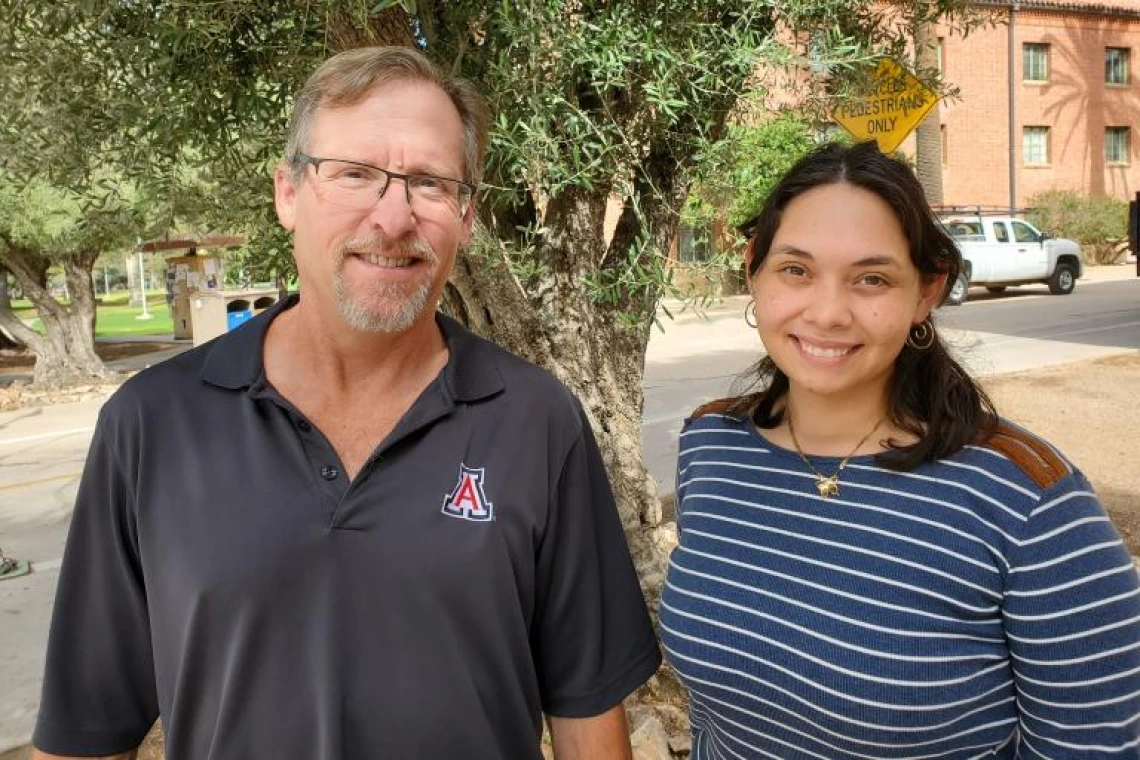ASTEROIDS Puts Undergrad from Puerto Rico on Road to PhD

Carla Colon Cruz was on the verge of dropping out of college in Puerto Rico when the pandemic hit in March of 2020. She did some soul searching, stumbled on the collaborative project ASTEROIDS in a Facebook post, and now she’s enrolled in the University of Arizona’s PhD program in materials science and engineering.
“I was going through a foggy time, and the stress of the transition to fully virtual classes made me question if I had what it took to pursue a degree,” she said. “I tell people all the time – ASTEROIDS saved my future.”
Filling the Void with Space
The NASA-funded ASTEROIDS Laboratory (Asteroid Science, Technology and Exploration Research Organized by Inclusive eDucation Systems Laboratory) brings together faculty and undergraduates, many historically underrepresented in STEM, from the UA, Pima Community College and University of Puerto Rico. The researchers use mini-laboratories in space – satellites that contain meteorite material and operate in low-earth orbit – to simulate and study the surface conditions of asteroids. The UA program is part of NASA’s Minority University Research and Education Project, or MUREP. During the pandemic, the program, led by principal investigator and aerospace and mechanical engineering associate professor Jekan Thanga, continued online.
Cruz, who graduated with a BS in chemistry from the Ana G. Mendez University in Puerto Rico in spring 2022, credits not just ASTEROIDS with her renewed commitment to education, but also program peers and Greg Ogden’s mentorship. Ogden, a UA research professor in chemical engineering, leads an ASTEROIDS project converting sunlight to heat energy for solar powered steam rockets.
Cruz applied her love of chemistry to her work testing potential rocket materials with an infrared spectrometer to determine their capacity to absorb heat.
“Her research experience is directly relevant to my project, so it was a no-brainer that she was perfect for the job,” said Ogden, who is excited to see where Cruz’s doctoral research and career take her.
“Carla brings the same determination and resilience that helped her overcome obstacles in her life to her research, which is a formula for success.”
Overcoming Adversity on All Fronts
Cruz is indeed no stranger to adversity. In 2017 during her first year in college, she and her family survived Puerto Rico’s worst natural disaster ever when Hurricane Maria devastated the northeastern Caribbean, plunging the U.S. territory into darkness for months and claiming more than 3,000 lives.
With classes canceled and food and water scarce, she and friends gathered to share what little they had, at one point a single can of ravioli.
“Most of us in Puerto Rico share deep and fond memories because we were tested to the extreme but managed to show the best of ourselves,” she said.
As a Latina studying chemistry, Cruz has been tested in other ways, too. Early in her academic journey, for example, even though she had excellent grades, one male instructor encouraged her to change her major to something requiring “less intelligence and responsibility.”
A friend she met during an internship put it into perspective: “A woman in STEM needs to work twice as hard to be considered average in the world of men.”
Now Cruz is relishing her place in the UA College of Engineering.
“I am so excited to join the PhD program so I can work with peers and mentors who treat me and my work with respect and give me the tools I need to become a better version of myself – both professionally and personally,” she said.
Cruz is just as determined to support other young women in STEM as she pursues her UA PhD in materials science and engineering.
“I want to help other women achieve their goals in the best ways possible.”
